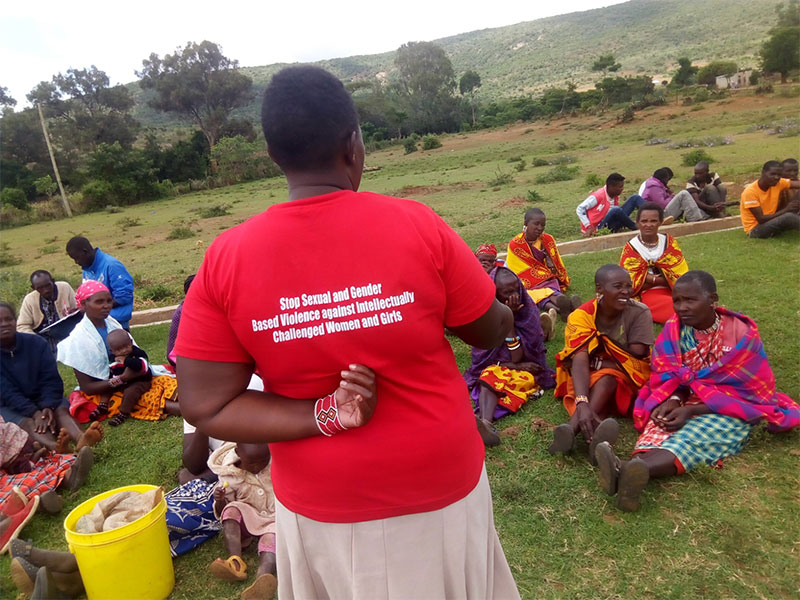Based on a Criminal Case Ruling Appeal Number 102, 2016 where three court of Appeal Judges Kiage, Musinga and Nambuye reversed a 15-year sentence of young man who impregnated a 17-year-old girl, Coalition on Violence Against Women (COVAW) is strongly opposed to the idea of reducing consensual age for sexual activity as proposed by the three judges from the current age at 18 years to 16 years.

Kenya defines a ‘child’ as an individual who has not attained the age of 18 years and it is in line with the United Nations Convention on the Rights of the Child (UNCRC). This classifies a child as a vulnerable person who requires special protections. These protections are not a benefit but a right. The Constitution of Kenya provides in Article 53 for protection to children as an independent right owing to the vulnerabilities that persons under the age of eighteen are exposed to.
These vulnerabilities include sexual immaturity, innocence and lack of sexual knowledge and experience . For instance, both sexes, early pubertal maturation appears to be associated with earlier relationship formation and sexual initiation. Those with slight knowledge about sex often their sexual activities are circumstantial and takes place without caution . In this context, sexual violence amongst children especially adolescent girls takes many forms, including rape, sexual assault, defilement, incest, and many others .
A significant number of these sexual violation cases often involves a minor and an adult. Compared to boys, young girls are even more vulnerable to sexual and physical violence . They are vulnerable to early and unintended pregnancies with adverse birth outcomes as a result of their gynecological immaturity and incomplete pelvic growth and other complications . Because of their vulnerabilities, many adolescent pregnancies occur in the context of human rights violations such as child marriage or coerced sex. Lowering the age consent to 16 would mean girls would not stay longer in schools as they used to due to early sexual initiation, early marriage/cohabitation, and early childbearing.
The reason therefore why a child is deemed as not able to give consent is due to these vulnerabilities including their young age which also incapacitates them from fully appreciating the nature of activities they are agreeing to especially with adults who would easily take advantage of the situation. Regardless of the physical development of a child, the same is not commensurate to the psychological aspect which plays a big role in helping one to understand the long term effects of some decisions. While there are some courts that have held that a child was behaving in a manner to attract such attention, or be deemed to allude to consent, close interrogation of these children will clearly establish that beyond the spur of the moment, such children have not fully appreciated the consequences of their actions and are in no way, capable of making life changing decisions.
The protections afforded to children by various Acts including the Sexual Offences Act cannot be withdrawn simply to take care of adults who choose to ignore the law and abandon all reason when deciding to engage sex with minors. The argument to reduce the age to cater to these men is akin to shifting the blame to the child who does not know better. Notable is the fact that majority of persons who engage in sexual liaisons with children are adults and thus, reducing the age will expose the children to further violations by their care givers, teachers and general persons in the society.
The Sexual Offences Act provides in Section 8(5) the defence that is available in such instances and in Section 8(6) states clearly that it is incumbent on the accused to prove that he/she took measures to ascertain the age of the complainant. Consent according to Section 42 of the Sexual Offences Act inter alia includes the capacity to agree to the sexual act.
Age of consent laws, serve as a means for regulating children’s sexual activity, identity and behaviour . The establishment of a minimum legal age for sexual consent is one of the many ways that governments seek to negotiate nature of childhood, and the scope and boundaries of children’s rights . Setting an appropriate age of consent to sexual activity therefore requires a balance of rights to their protection . The fact that young men of between ages 18-21 are increasingly being convicted owing to sexual liaisons with persons under the age of eighteen should not be the only factor that should be taken into consideration when discussing the age of sexual consent. It is incumbent upon the person engaging in sexual liaisons with the other to establish that they are of legal age to engage in this. Moreover, the proposition to reduce the age to 16 will not necessarily cure the intended problem. Once the age is reduced, if no other remedies are put in place to reduce the moral decadency, then we will simply have transferred the problem as there will be a rise in the number of boys aged between 16 and 19 who will be jailed for the same offences hence taking us back to the same situation we are in at the moment. It is notable to point out, that not only men or boys can be charged with sexual offences, women and girls too can be charged and convicted.
We simply then cannot play into the hands of adult perpetrators who are choosing to ignore the law. Since this is likely to give way for further violations and child exploitation such as early marriages and child labor amongst other violations. When we allow children to freely have sexual relations and get married, children will be forced to drop out of school and start taking up roles which they are not ready for since as children, they are still fully reliant on their parents for provision and guidance. And when they take up these roles, they only perpetuate the vicious cycle of poverty.
Thus allowing a blanket decision to reduce the age without even due consideration to the people who will end up providing for the babies resultant of such unions is a joke. The act will also lead to an increase in poverty.
It is a joke to shift the blame to children when the party engaging with the child is an adult of sound legal mind capable in law of making decisions. Even at the age of eighteen; such young adults do not have the capacity to appreciate the consequences of their decisions let alone 16 year olds. Lowering the age of consent to 16 years would therefore make the children extremely vulnerable to adult perpetrators who are most likely to misuse their power by taking advantage of children and further exploiting them. Section 24 of the Children’s Act for example provides instances when parental responsibility can be extended past the age of 18. This is clearly because of the fact that even at 18, very few young adults are able to make informed and responsible decisions let alone supporting themselves.
The only consideration if at all that should be put in place would be to respond to the rise of Romeo and Juliet cases (child-to-child “consensual” teenage sex). There has been an increase in the number of teenagers engaging in voluntary sex. In this regard, a proposal would be to amend the Sexual Offences Act to put in special measures to protect these children who are voluntarily engaging in these relations. Even then, borrowing from the Canadian jurisdiction, there should be limits on the exemption and the age difference should be say two years, both in school and no force or coercion should have been used by either child. The extension could be made to persons who are eighteen and still pursuing high school education but in no way, can it be extended to adults who are not within the high school student purview and are instead choosing to prey on our young girls.
Despite the ratification of various International instruments on Reproductive Health and the express provision by our Constitution in Article 43 on access to highest attainable standard of health for all; Kenya is still a long way from realizing the Reproductive health rights of its citizens. Access to family planning services for adults is already quite challenging at the moment and even worse on children; further, the maternal death rates are also quite high.
Instead of lowering consent age to 16 years, what the government needs to focus on is devising strategies which would lead to an increased accessibility of comprehensive sexual and reproductive health information and services for young adults at both the national and county levels . Coalition on Women against Violence calls upon the Kenyan government to develop comprehensive sexual education curriculum and come up with practical strategies to implement the curriculum in both primary and secondary schools and also in Technical and Vocational Institutions. By doing so, sex education amongst young adolescents would greatly complement academic and vocational endeavors by empowering young adolescents with cognitive skills, social or interpersonal skills including communication, negotiation/refusal skills, assertiveness, cooperation, and empathy; and emotional coping skills which includes the management of feelings, stress, and impulses essential in translating younger adolescents’ sexual and reproductive health knowledge into practice. Sex education would significantly contribute to delaying the initiation of sex, reduce the number of sexual encounters and sexual partners amongst young adolescent girls and boys at puberty stage and training them to behave responsibly when they eventually engage in sexual activity. This is especially important in East and Southern Africa, where millions of adolescents and young people face barriers to exercising their right to Sexual Reproductive Health information and care . This also includes their access to credible information on sexuality and reproductive health. This information is not only about their physiology and their better understanding of the norms that society has set for sexual behavior, but also, the need to acquire the skills necessary to develop healthy relationships and engage in responsible decision-making about sex, especially during adolescence when their emotional development accelerates . With the right information at a tender age, young girls will be less vulnerable of their immediate environment especially as they interact with various persons in the community.
It is therefore important for the government to take a lead in giving comprehensive sexual and reproductive education other than contemplating of lowering the age consent to 16 years. Parents and caregivers need to provide leadership and guidance to children as well. It is indeed time for sober discussions to be held around the topic on teenage sex; but this should in no way be interpreted to mean entertaining talks on the age reduction for consent. If anything, the age of sex of sexual consent should be increased.
For further inquiries, contact:
Wairimu Munyinyi-Wahome, Executive Director- COVAW
Email: wmunyinyi.wahome@covaw.or.ke/info@covaw.or.ke
Tel: +254-20-8040000/1, +254-(722/733)-594794, +254-701050531
